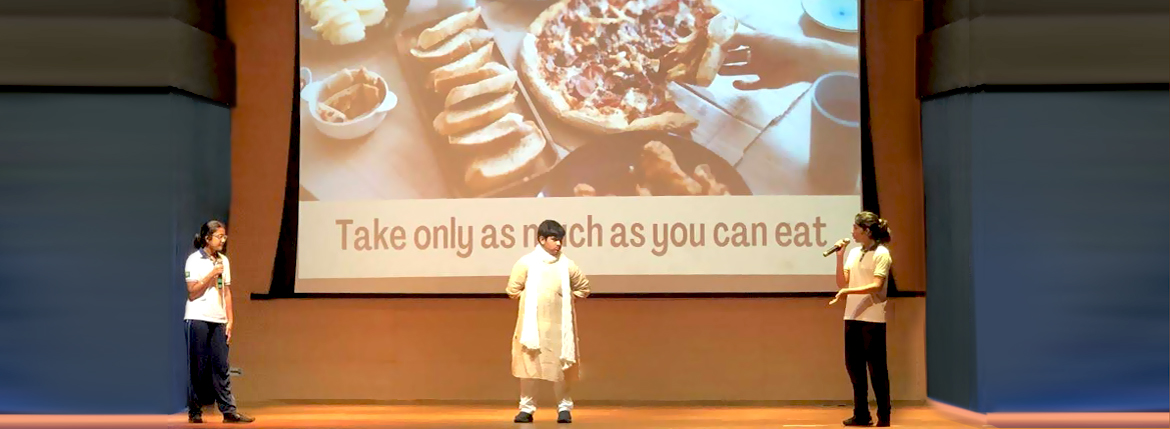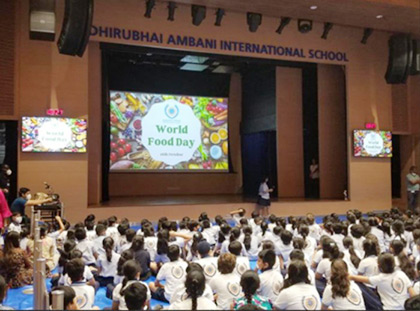
Another DAIS student led in initiative to address the real-world issues, of global food crisis- food wastage and food production. To support the international World Food Day initiative, a group of DAIS students planned a program to raise awareness of food production and how to reduce food wastage within school. After strenuous planning over multiple days, the event was conducted by students of grades 8, 9, 10, 11 and 12. The event was divided into two components: a short assembly was held for students of grades 1 to 7.
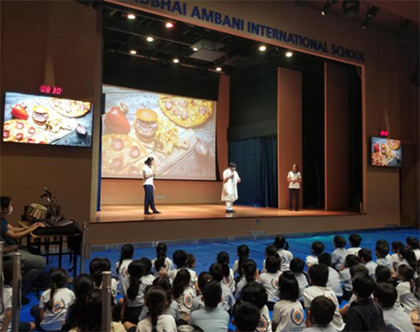
The assembly conveyed through a play, the journey of food from “farm-to-table”. As part of this skit, a student in the role of a farmer, recounted the story of food, right from sowing seeds to growing the crops that makes its way through farms, factories, markets and eventually to our homes. The objective was to make students understand effort that goes in producing food that is taken for granted and often wasted. A few tips on saving food were shared with the audience. This included taking smaller portions of food, finishing the food on your plate, avoid buying food in bulk, buying ‘ugly food’ etc.
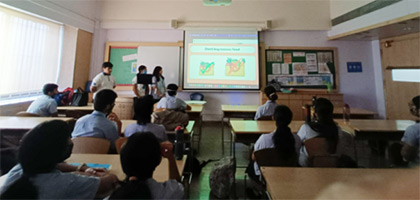
The second part of the initiative was a class-to-class awareness building campaign for students of grades 8 & 9. Student volunteers went to these classes and shared with them a presentation and video that highlighted the issue. This was followed by discussions and finding a long-term solution to the issue.
As part of the campaign, volunteer students created two videos as well as a trailer, to highlight the issue in an interactive and engaging manner. The video depicted the food waste in the school canteen, a message from the canteen manager to take smaller helpings and the conversion of canteen waste into compost using the schools Aga composter. Through these students were made aware of the need to prevent food wastage in school and at home.
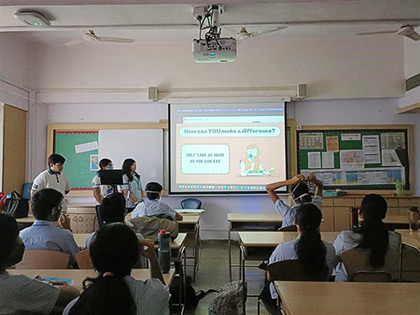
Prior to the assembly, volunteers were chosen to discuss the prevailing food crisis with grades 8 and 9. From the amount of wastage at a school level, to a global level, students were made aware of the consequences of their actions in terms of food wastage, as well as the value of food given the steeply rising population. The videos produced for the assembly were employed in these interactive sessions as well to provide students with means of reducing food wastage and meaningfully contributing to make the world a better place.

